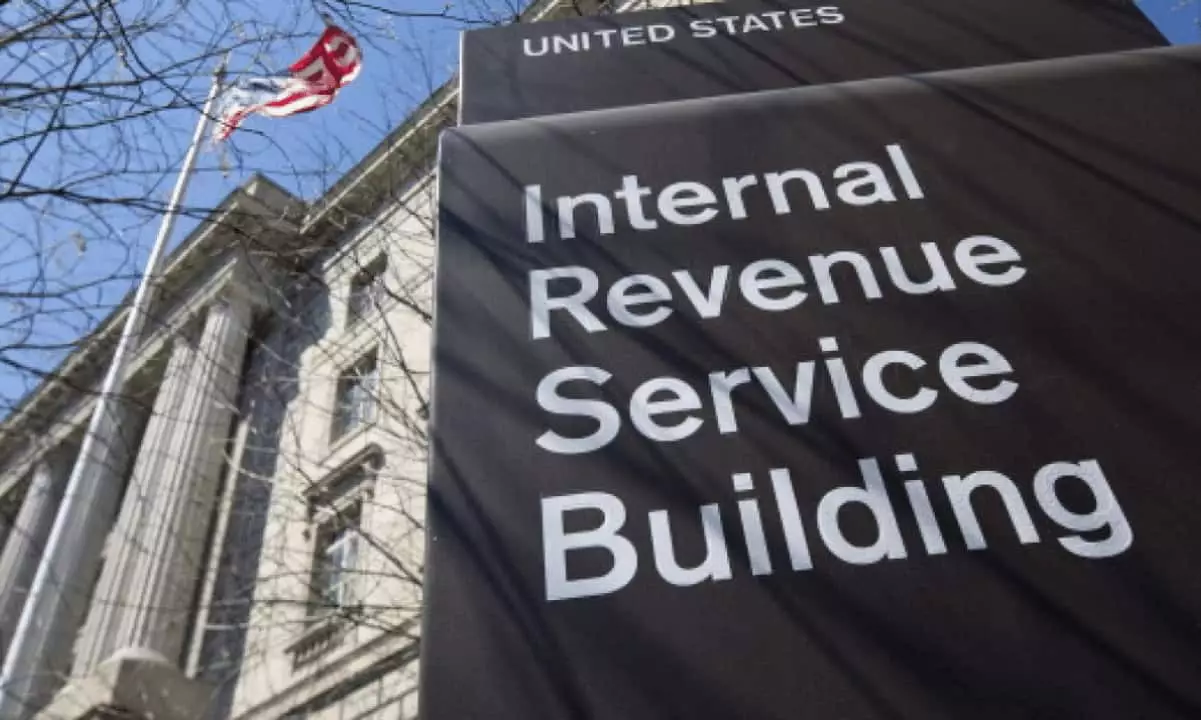As the world of cryptocurrency continues to expand rapidly, regulatory bodies are tasked with creating frameworks that ensure compliance and transparency in this innovative sector. The Internal Revenue Service (IRS) of the United States recently introduced a temporary relief measure to alleviate potential tax burdens for cryptocurrency holders utilizing centralized finance (CeFi) brokers. This move reflects the ongoing evolution of tax regulations as they adapt to the complexities of digital currencies and the transactions that accompany them.
In 2025, the IRS will implement Section 6045 custodial broker regulations, fundamentally changing how cryptocurrency transactions are reported. These regulations mandate that CeFi brokers must adhere to detailed reporting protocols, impacting how asset sales are accounted for. Shehan Chandrasekera, Head of Tax Strategy at CoinTracker, highlights the importance of this change and the potential implications for investors who may not be equipped to navigate the new rules.
One significant aspect of the new regulations is the requirement for users to select an accounting method for asset sales. Investors can choose between various methods, including the increasingly popular Highest In, First Out (HIFO) and Specific Identification (Spec ID). However, if an investor does not actively select a method, the default will be First In, First Out (FIFO). This default method could have noteworthy tax consequences, especially in a bullish market where earlier, lower-cost assets are liquidated first, potentially leading to higher tax liabilities.
Chandrasekera’s insights shed light on another crucial problem: the readiness of CeFi brokers to accommodate the Spec ID accounting method by January 2025. Many brokers appear unprepared for this switch, raising concerns for the average investor navigating these new waters. With an increasing number of transactions and the market’s volatility, it will be vital for cryptocurrency holders to stay informed and proactive in their accounting practices.
To assist taxpayers during this transitional phase, the IRS has issued Notice 2025-7, offering temporary relief for cryptocurrency transactions conducted through CeFi exchanges from January 1 to December 31, 2025. This notice allows taxpayers to circumvent the default FIFO method by utilizing their transaction records or trusted crypto tax software to designate the assets sold. This flexibility is a positive step for investors, as it promotes transparency and accuracy in tax reporting.
The automatic nature of this relief means taxpayers do not need to take immediate action, which is a significant advantage. However, starting January 1, 2026, investors must ensure they select their preferred accounting method in coordination with their brokers to avoid falling back to the automatic FIFO system. This period gives both taxpayers and brokers a chance to adjust, ideally providing a smoother transition into a more structured reporting environment.
As taxpayers adapt to these upcoming changes, there are several key takeaways worth considering. First and foremost, maintaining detailed transaction records is crucial for compliance and accurate reporting. Investors should also invest in reputable crypto tax software, ensuring that their record-keeping aligns with their chosen accounting method. Any discrepancies could lead to unfavorable outcomes, particularly with the risk of defaulting to the FIFO method.
Chandrasekera emphasizes the importance of ensuring that brokers’ accounting methods align with the user’s preferences, underlining the need for investors to communicate openly with their brokers. Those who start planning now may mitigate potential issues and streamline their tax-reporting process.
The landscape of cryptocurrency taxation doesn’t exist in isolation. Recently, the IRS introduced new broker reporting rules, including an expansion of broker definitions to encompass decentralized finance (DeFi) platforms. This development, however, has sparked controversy and legal challenges, highlighting the sector’s ongoing regulatory complexities. Organizations like A16z Crypto and the DeFi Education Fund have actively contested these measures, suggesting potential overreach on the part of the Treasury.
As authorities continue to refine cryptocurrency regulations, the success of these measures hinges on clear communication and effective compliance strategies. Educating both taxpayers and brokers about the implications of new regulations is crucial for fostering a transparent environment as this market matures. Ultimately, whether these temporary relief measures will suffice in adapting to long-term changes in the digital asset space remains to be seen. What is evident is that cryptocurrency holders must stay informed and engaged as the landscape evolves, making proactive decisions that align with their financial goals.

